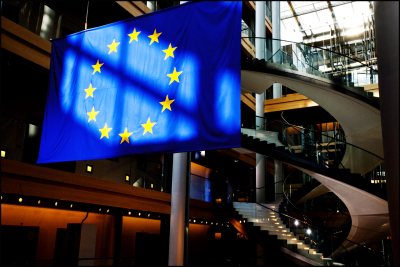“There is no mandatory regulation on reporting or registering lobby activities. Registers provided by lobbyists’ organisations in the EU are voluntary and incomprehensive and do not provide much information on the specific interests represented or how it is financed.” This take on lobbying in the EU was made by then Commissioner Kallas, when he launched the ‘European Transparency Initiative’. That was more than 13 years ago. Most of his analysis still rings true today, despite the progress that has clearly been made over the past 13 years: there still is no mandatory regulation, the register is voluntary and as many of half the organisations on the current register provide incomplete, meaningless or outright false information on their specific activities and their financing.
Next Monday marks the first political exchange between Commission, Parliament and Council on a new lobby register. At first glance, this is great news. All institutions have voiced their strong support for more transparency and making EU law and decision-making more accessible and more accountable to citizens.
Looking closer however we see that both the European Parliament and Council have developed their respective (legal) excuses of why they cannot restrict the access of lobbyists refusing to play by a basic rules and to publish minimal information on their activities and finances. Members of Parliament argue they are no longer free in their voting decisions if they have to disclose who provides them with amendments or voting indications behind closed doors. Member States Representations argue they fall solely under national jurisdiction, where no functioning lobby registers exists bar in France and Ireland. A simple decision by member states could cover at least their embassies, but that is not even being discussed. Although they use slightly different arguments, the result is the same: citizens will continue to have little to no idea about lobbying activities taking place in those institutions.
The proposal made by the Commission in 2016 for a mandatory lobby register was a step in the right direction, but a number of scandals have exposed additional weaknesses of the proposed system. An investigation in the United States, tasked with uncovering Russian interference in the 2016 US Presidential elections, exposed the risk of foreign influence in the EU. Involving former European heads of governments, secretive lobby organisations and dirty money channelled into national politics, the resulting indictments paint a worrying picture of Europe’s weaknesses to covert efforts to influence decision-makers and subvert public opinion. The case highlighted once again the inadequacy of EU lobbying rules, both in terms of transparency and ability to verify the adequacy of information disclosed.Other cases of covert foreign influence, such as the 2.5 billion euros slush fund uncovered in the Azerbaijani laundromat case, demonstrate that it is high-time for EU leaders to become serious about safeguarding our democratic system from political corruption and undue influence – whether foreign or domestic. Combined with the increased use of social media to sow distrust and nurture discontent, there are far too many avenues within the EU through which foreign and special interests can hide their true intentions.
Current EU rules on lobby transparency do not consider the activities of third-country governments as lobbying. The proposed new mandatory EU Transparency Register does not fix this loophole – indeed it instead creates further exceptions for sub-national public entities. We also continue to see many registered organisations not declaring the true extend of their lobbying activities. Even when this gets uncovered – such as in the case of Monsanto under-declaring their lobby expenditures by 1 million euros – it remains without consequence or sanction. Other lobbyists still refuse to register despite being invited by the Joint Secretariat.
If the institutions want to deliver on the 13 year old promise of more lobby transparency and curbing the undue influence of special interests foreign and domestic, the negotiators of all the EU institutions will need to move far beyond their current positions.
Transparency International EU and the major associations representing EU public affairs professionals (SEAP), consultancies (EPACA) and lawyers (CCBE) as well as umbrella groups such
as the European Youth Forum and Social Platform have sent a joint letter to the EU institutions calling for a robust mandatory Transparency register. The letter is available here.






